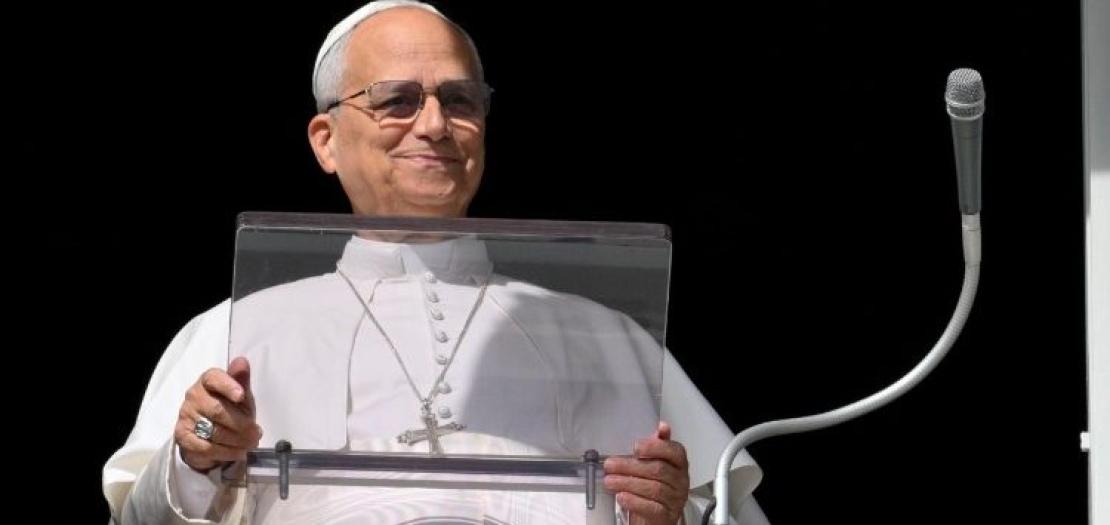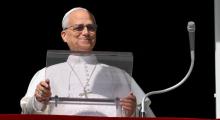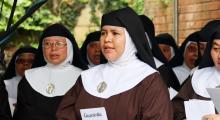Issued by the Catholic Center for Studies and Media - Jordan. Editor-in-chief Fr. Rif'at Bader - موقع أبونا abouna.org

Addressing the faithful gathered in St Peter’s Square on Sunday, Pope Leo XIV reflected on the meaning of the first few days of November, when the Church marks the Solemnity of All Saints and the Commemoration of All the Faithful Departed. The Pope said that in these days, “the resurrection of the crucified Jesus from the dead sheds light on the destiny of each one of us.”
Quoting the Gospel of John, he recalled Jesus’ words when he said: “This is the will of him who sent me, that I should lose nothing of all that he has given me, but raise it up on the last day”.
Reflecting on these words, the Pope emphasised that “the focus of God’s concerns is clear,” and that is, “that no one should perish forever and that everyone should have their own place and radiate their unique beauty.”
A communion that unites differences
Recalling the previous day's celebration of All Saints, Pope Leo described it as “a communion of differences that, so to speak, extends God’s life to all his daughters and sons who wish to share in it.” Every human being, he said, carries a desire “for recognition, attention and joy.” Quoting Pope Benedict XVI’s Spe Salvi, he added that the expression “eternal life” gives a name to this longing. “not a succession of time without end", he added, "but being so immersed in an ocean of infinite love that time, before, and after no longer exist.”
“This fullness of life and joy in Christ,” Pope Leo continued, “is what we hope for and await with all our being.”
Remembering those who have gone before us
The Holy Father then turned to the Commemoration of All Souls, being celebrated on the day, noting how “each time that death seems definitively to take away a voice, a face or an entire world, interiorly we understand God’s concern that no one perish. In fact, each person is an entire world.”
He reflected on the importance of memory, calling it “so precious and yet so fragile.” Without the memory of Jesus - “of his life, death and resurrection" - he said, “the immense treasure of daily life risks being forgotten.” Yet in Christ, he continued, “even those whom no one remembers, or whom history seems to have erased, always remain in their infinite dignity.”
A hope that looks forward
Pope Leo then went on to remind the faithful gathered that Christians have always remembered the deceased in the Eucharist, “asking that those dear to them be remembered in the Eucharistic Prayer.” From this, he said, “arises the hope that no one will perish.”
He invited the faithful to let visits to cemeteries become moments of “silence that interrupts the hustle and bustle of life,” urging them to remember and to wait in hope. “As we say in the Creed: ‘I look forward to the resurrection of the dead and the life of the world to come.’”
“Let us commemorate, therefore, the future,” Pope Leo concluded, “for we are not enclosed in the past or in sentimental tears of nostalgia. Neither are we sealed within the present, as in a tomb.”







